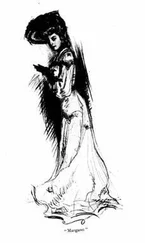James Cabell - The Cords of Vanity. A Comedy of Shirking
Здесь есть возможность читать онлайн «James Cabell - The Cords of Vanity. A Comedy of Shirking» весь текст электронной книги совершенно бесплатно (целиком полную версию без сокращений). В некоторых случаях можно слушать аудио, скачать через торрент в формате fb2 и присутствует краткое содержание. Жанр: Современная проза, на английском языке. Описание произведения, (предисловие) а так же отзывы посетителей доступны на портале библиотеки ЛибКат.
- Название:The Cords of Vanity. A Comedy of Shirking
- Автор:
- Жанр:
- Год:неизвестен
- ISBN:нет данных
- Рейтинг книги:3 / 5. Голосов: 1
-
Избранное:Добавить в избранное
- Отзывы:
-
Ваша оценка:
- 60
- 1
- 2
- 3
- 4
- 5
The Cords of Vanity. A Comedy of Shirking: краткое содержание, описание и аннотация
Предлагаем к чтению аннотацию, описание, краткое содержание или предисловие (зависит от того, что написал сам автор книги «The Cords of Vanity. A Comedy of Shirking»). Если вы не нашли необходимую информацию о книге — напишите в комментариях, мы постараемся отыскать её.
The Cords of Vanity. A Comedy of Shirking — читать онлайн бесплатно полную книгу (весь текст) целиком
Ниже представлен текст книги, разбитый по страницам. Система сохранения места последней прочитанной страницы, позволяет с удобством читать онлайн бесплатно книгу «The Cords of Vanity. A Comedy of Shirking», без необходимости каждый раз заново искать на чём Вы остановились. Поставьте закладку, и сможете в любой момент перейти на страницу, на которой закончили чтение.
Интервал:
Закладка:
"You will come back?" said she, half-doubtingly.
"Yes," I said. "You wonderful, elfin creature, I shall undoubtedly come back—to your real home, and claim you there. Only I don't believe you do live in Aberlin,—you probably live in some great, gnarled oak hereabouts; and at night its bark uncloses to set you free, and you and your sisters dance out the satyrs' hearts in the moonlight. Oh, I know, Marian! I simply know you are a dryad,—a wonderful, laughing, clear-eyed dryad strayed out of the golden age."
"What a boy it is!" she said. "No, I am only a really and truly girl, dear,—a rather frightened girl, with very little disposition to laughter, just now. For you are going away—Oh, my dear, you have meant so much to me! The world is so different since you have come, and I am so happy and so miserable that—that I am afraid." An infinitesimal handkerchief went upward to two great, sparkling eyes, and dabbed at them.
"Dear!" said I. And this remark appeared to meet the requirements of the situation.
There was a silence now. We sat in the same spot where I had first encountered Marian Winwood. Only this was an autumnal forest that glowed with many gem-like hues about us; and already the damp odour of decaying leaves was heavy in the air. It was like the Tosti thing translated out of marine terms into a woodland analogue. The summer was ended; but As the Coming of Dawn was practically complete.
It was not the book that I had planned, but a far greater one which was scarcely mine. There was no word written as yet. But for two months I had viewed life through Marian Winwood's eyes; day by day, my half-formed, tentative ideas had been laid before her with elaborate fortuitousness, to be approved, or altered, or rejected, just as she decreed; until at last they had been welded into a perfect whole that was a Book, bit by bit, we had planned it, I and she; and, as I dreamed of it as it would be in print, my brain was fired with exultation, and I defied my doubt and I swore that the Book, for which I had pawned a certain portion of my self-respect, was worth—and triply worth—the price which had been paid…. This was in Marian's absence.
"Dear!" said she….
Her eyes were filled with a tender and unutterable confidence that thrilled me like physical cold. "Marian," said I, simply, "I shall never come back."
The eyes widened a trifle, but she did not seem to comprehend.
"Have you not wondered," said I, "that I have never kissed you, except as if you were a very holy relic or a cousin or something of that sort?"
"Yes," she answered. Her voice was quite emotionless.
"And yet—yet—" I sprang to my feet. "Dear God, how I have longed! Yesterday, only yesterday, as I read to you from the verses I had made to other women, those women that are colourless shadows by the side of your vivid beauty,—and you listened wonderingly and said the proper things and then lapsed into dainty boredom,— how I longed to take you in my arms, and to quicken your calm blood a little with another sort of kissing. You knew—you must have known! Last night, for instance—"
"Last night," she said, very simply, "I thought—And I hoped you would."
"What a confession for a nicely brought up girl! Well! I didn't. And afterward, all night, I tossed in sick, fevered dreams of you. I am mad for love of you. And so, once in a while I kiss your hand. Dear God, your hand!" My voice quavered, effectively.
"Yes," said she; "still, I remember—"
"I have struggled; and I have conquered this madness,—for a madness it is. We can laugh together and be excellent friends; and we can never, never be anything more. Well! we have laughed, have we not, dear, a whole summer through? Now comes the ending. Ah, I have seen you puzzling over my meaning before this. You never understood me thoroughly; but it is always safe to laugh."
She smiled; and I remember now it was rather as Mona Lisa smiles.
"For we can laugh together,—that is all. We are not mates. You were born to be the wife of a strong man and the mother of his sturdy children; and you and your sort will inherit the earth and make the laws for us weaklings who dream and scribble and paint. We are not mates. But you have been very kind to me, Marian dear. So I thank you and say good-bye; and I pray that I may never see you after to-day."
There was a sub-tang of veracity in my deprecation of an unasked-for artistic temperament; the thing is very often a nuisance, and was just then a barrier which I perceived plainly; and with equal plainness I perceived the pettier motives that now caused me to point it out as a barrier to Marian. My lips curled half in mockery of myself, as I framed the bitter smile I felt the situation demanded; but I was fired with the part I was playing; and half-belief had crept into my mind that Marian Winwood was created, chiefly, for the purpose which she had already served.
I regarded her, in fine, as through the eyes of future readers of my biography. She would represent an episode in my life, as others do in that of Byron or of Goethe. I pitied her sincerely; and, under all, what moralists would call my lower nature, held in leash for two months past, chuckled, and grinned, and leaped, at the thought of a holiday.
She rose to her feet. "Good-bye," said she.
"You—you understand, dear?" I queried, tenderly.
"Yes," she answered; "I understand—not what you have just told me, for in that, of course, you have lied. That Jemmett girl and her money is at the bottom of it all, of course. You didn't want to lose her, and still you wanted to play with me. So you were pulled two ways, poor dear."
"Oh, well, if that is what you think of me—!"
"You see, you are not an uncommon type,—a type not strong enough to live life healthily, just strong enough to dabble in life, to trifle with emotions, to experiment with other people's lives. Indeed, I am not angry, dear; I am only—sorry; for you have played with me very nicely indeed, and very boyishly, and the summer has been very happy."
5
I returned to Lichfield and wrote As the Coming of Dawn .
I spent six months in this. My work at first was mere copying of the book that already existed in my brain; but when it was transcribed therefrom, I wrote and rewrote, shifted and polished and adorned until it seemed I would never have done; and indeed I was not anxious to have done with any labour so delightful.
Particularly did I rejoice in the character for which Marian Winwood had posed. Last summer's note-book here came into play; and now, for once, my heroine was in no need of either shoving or prompting. She did things of her own accord, and I was merely her scribe…
I would vain-gloriously protest, just to myself, that the love scenes in this story were the most exquisite and, with all that, the most genuine love scenes I knew of anywhere. "By God!" I would occasionally say with Thackeray; "I am a genius!"
Besides, the story of the book, I knew, was novel and astutely wrought; its progress caught at once and teased your interest always, so that having begun it, most people would read to the end, if only to discover "how it all came out." I knew the book, in fine, could hardly fail to please and interest a number of people by reason of its plot alone.
I ought to have been content with this. But I had somehow contracted an insane notion that a novel is the more enjoyable when it is adroitly written. In point of fact, of course, no man who writes with care is ever read with pleasure; you may toil through a page or two perhaps, but presently you are noting how precisely every word is fitted to the thought, and later you are noting nothing else. You are insensibly beguiled into a fidgety-footed analysis of every clause, which fatigues in the outcome, and by the tenth page you are yawning.
Читать дальшеИнтервал:
Закладка:
Похожие книги на «The Cords of Vanity. A Comedy of Shirking»
Представляем Вашему вниманию похожие книги на «The Cords of Vanity. A Comedy of Shirking» списком для выбора. Мы отобрали схожую по названию и смыслу литературу в надежде предоставить читателям больше вариантов отыскать новые, интересные, ещё непрочитанные произведения.
Обсуждение, отзывы о книге «The Cords of Vanity. A Comedy of Shirking» и просто собственные мнения читателей. Оставьте ваши комментарии, напишите, что Вы думаете о произведении, его смысле или главных героях. Укажите что конкретно понравилось, а что нет, и почему Вы так считаете.



